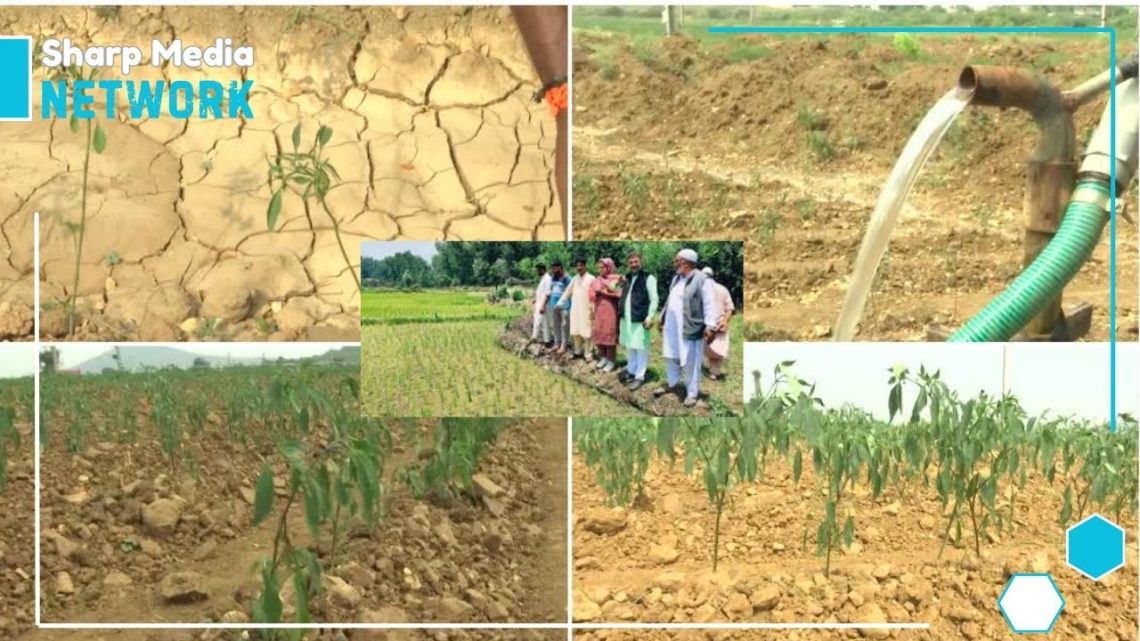
IIOJK’s Agricultural Crisis Amid Farmers’ Protest Destructive Land Acquisition by Modi Regime
January 1, 2025Growers in IIOJK fight for survival as the Modi regime’s land acquisition threatens their centuries-old livelihoods and the region’s agricultural future.
In a desperate move to protect their livelihoods, farmers in Indian Illegally Occupied Jammu and Kashmir (IIOJK) have staged a hunger strike and protest against the Modi regime’s decision to acquire 600 acres of fertile land in Pulwama. The acquisition, led by Lieutenant Governor Manoj Sinha, aims to establish a National Institute of Technology (NIT) campus, displacing generations of local families whose lives have been intertwined with this land for decades.
The land, located in Parigam, is part of IIOJK’s karewa plateau, which supports the region’s valuable agricultural output, including saffron, apples, almonds, and plums. This 600-acre parcel, home to over 5.5 lakh fruit trees, will be destroyed if the project proceeds. Farmers like 51-year-old Feroz Ahmed Wani, who has been on a hunger strike for four days, have voiced their anguish, with Wani declaring, “This land is my life. It is my family’s life.” These families, having cultivated the land for generations, now face the loss of not just their crops, but their entire way of life.
The acquisition has sparked outrage across the farming community. The land in question comprises 20% of the region’s cultivable land, vital for local agriculture and the economy. Farmers like Nazr ul Islam from Lonepora worry about the financial burden they will face if the project proceeds. Many have taken loans to invest in high-density apple farming, relying on the land’s fertility and government subsidies. The prospect of losing it all for a non-agricultural project has left them devastated and uncertain about their future.
The proposed NIT campus, which is set to expand nine times the size of the current site, has drawn skepticism from both locals and experts. Many question its necessity, especially given the environmental cost. Local environmentalist Dr. Ishtiyaq emphasized that the orchards play a crucial role in carbon absorption and providing habitats for pollinators. “Their destruction is a loss not only to farmers but to the environment as a whole,” he stated.
With 70% of IIOJK’s population dependent on agriculture, the implications of losing such significant tracts of fertile land are far-reaching. The impact extends beyond farmers, affecting local businesses and the region’s economy as a whole. Without the land, many fear a collapse of the agricultural economy, leaving thousands without a means to support themselves.
The Modi government’s decision to prioritize infrastructure over the livelihoods of local farmers is a stark example of the region’s ongoing marginalization. It’s a move that not only threatens the future of IIOJK’s agriculture but its entire way of life.

